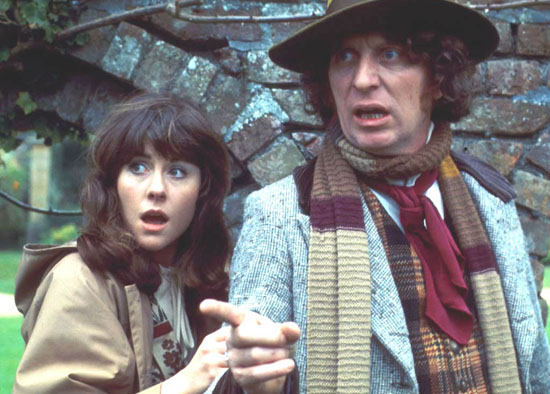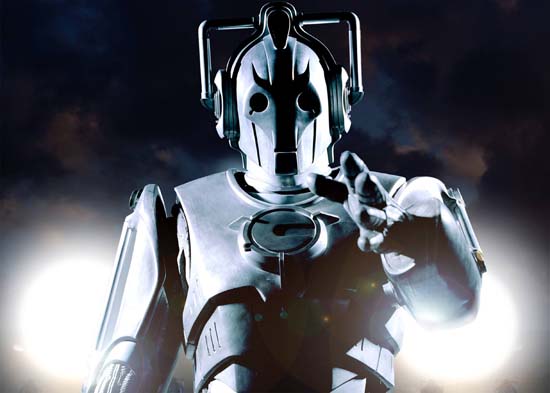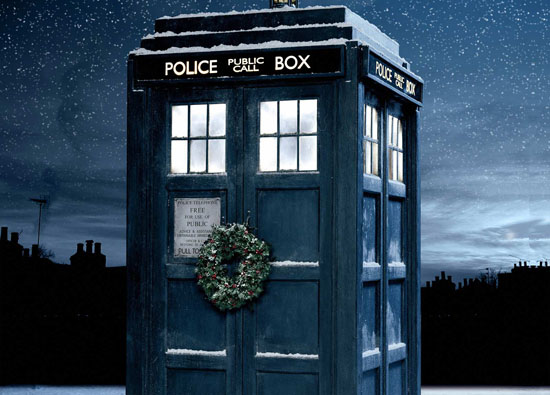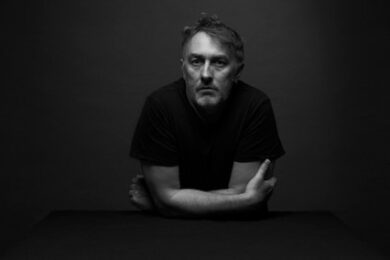Christmas Day 2008 will witness the further entrenchment of what has over the last few years become a British televisual tradition, the Doctor Who Christmas Special. Starring both David Tennant and David Morrissey in the lead role – the rumour mill grinding appropriately – The Next Doctor is one of those rare things in our jaded epoch: a hotly anticipated TV event which requires the surrender of neither intellect nor imagination. The special rounds off another triumphant year for the show, its fourth season – now out on DVD – distinguished by rapturous acclaim, formidable ratings and a spectacular season finale which saw the defeat of resurrected Dalek mastermind Davros. But there’s more to the success of Doctor Who than terrifying monsters, interplanetary hi-jinks and frothy melodrama. In the hands of chief writer and executive producer Russell T Davies, Doctor Who has revitalised mainstream television at a crucial time, and the show’s history of subtle subversion as well as its uniquely British democratic agenda, have once again brought moral agency, emotional complexity and challenge to family entertainment. The queering of prime-time TV has seldom been so effective, nor so much fun.
"There’s very classically and traditionally a strong gay fan base for Doctor Who," Davies told The New York Times in March 2006. "He is a loner and a wanderer. He doesn’t represent the authority – he is a man, unlike any other, doing his own thing. I think you can see the emotional connection.”
Given that many gay, bi and trans people are forced at an early age to sever links with their background, to replace their blood relatives with more accepting and understanding ‘families’ of friends, it’s easy to see why the Doctor strikes a chord. His continued penchant for young travel companions, whose company he prefers to the fusty conservatism of his Time Lord peers back on Gallifrey, offers another neat parallel to this particularly painful form of exile. There’s also a political dimension to the Doctor’s own estrangement from his homeworld; he’s an agent of change, not content to idly observe as time plays out across the multiverse. His wish is to intervene, to vanquish evil and injustice wherever it may be found. This desire for action reflects the LGBT community’s desire for progress, for the reconfiguration of an unfair, often fatally bigoted, world. Then there’s the inevitable question of the Doctor’s sexuality, which remains a mystery despite his decidedly mixed feelings for recent companions. It is notable that at the end of the fourth season, the Doctor had to split himself in two in order to submit to a life of domestic bliss with the lovelorn Rose Tyler (Billie Piper) in an alternate universe – and Rassilon only knows what we’re to make of the fact that he flies through time and space in what resembles a big blue closet, albeit one bigger on the inside than on the outside.

Russell T Davies is unquestionably the most ‘out ‘n’ proud’ producer of Doctor Who to date, and has achieved something previously unthinkable for a prime-time TV series with the introduction of an unambiguously heroic bisexual character in the hunky shape of ‘Captain’ Jack Harkness (John Barrowman), who also heads adult-themed spin-off Torchwood. But the Davies effect is not entirely without precedent. It could be said that the late John Nathan Turner, the charismatic gay man who produced the show from 1980 to 1989, provided a sort of wobbly template for Davies’ fully-fledged reboot. Like Davies, Turner was determined to modernise the show, constantly threatening to alter or do away with familiar elements while also reintroducing characters from the show’s history. As the classic series slumped towards entropy, Turner incurred the wrath of fans for such controversial decisions as bringing in ex-child star Bonnie Langford as companion Mel Bush and casting light entertainers such as Ken Dodd (in Delta and the Bannermen) and comedy double act Hale and Pace (in the original series’ ignominious final adventure, Survival). Intriguing, when one considers the recent casting of showbiz sorts like pop icon Kylie Minogue and comedian Catherine Tate. If Turner were alive today, perhaps he would view Davies’ success as the ultimate realisation of his aim of making Doctor Who large-scale, populist entertainment of the highest quality, though he would surely turn Erato-green at Davies’ stellar budgets and ratings.
Of course, in order to become one of the most watched shows on British TV, Doctor Who has had to make sacrifices. Looking back at classic episodes from the show’s 1963-1982 golden period, even those blighted with shaky sets, mediocre scripts and poor acting exude an atmosphere generally lacking in the current series. Much of this is due the intervening decades, which inevitably lend such artefacts a fuzzy charm; but the psychedelic strangeness of stories such as An Unearthly Child, Web Of Fear, Spearhead From Space and Image Of The Fendahl, as well as their avoidance of sentimentality and romance, is certainly missed, as are the gorgeous, painstakingly crafted electronic soundtracks of the BBC Radiophonic Workshop; and, as blogger Mark Fisher (aka K-Punk) has pointed out, the original series made inventive use of location, coaxing out the latent weirdness of the British wasteland and employing such already unheimlich sites as Dungeness Power Station in Kent to memorable effect. Needless to say, it’ll be a fair few budget cuts down the line until we see the Doctor and his companion opening the Tardis door onto, say, a Dorset gravel quarry.

For some fans of classic Who, the drawn-out departure of companion Rose Tyler (Billie Piper) at the end of series two offered a stark indication of the difference between old and new, highlighting an occasionally intrusive predilection for Buffy-style touchy-feely melodrama. Here, the programme crashed so far through the barrier marked ‘moving’ it ended up hitting the wall marked ‘icky’. Contrast this with the quiet dignity of Jon Pertwee’s third Doctor at the conclusion of The Green Death, leaving companion Jo Grant (Katy Manning) to celebrate her new engagement, silent and crestfallen, alone once again in a chaotic universe. Alternatively, check out 1976’s The Hand Of Fear, which ends with Tom Baker’s fourth Doctor abruptly summoned back to Gallifrey. Forbidden from accompanying him, Sarah Jane Smith (Elisabeth Sladen) is unceremoniously dumped in Aberdeen. She does not see him again until 1983’s The Five Doctors (she reappears in the recent School Reunion, and subsequently the rather splendid Children’s BBC series The Sarah Jane Adventures). There’s a brutality to this kind of forced separation that no amount of explicit anguish or ‘But Doctor, I…’ could ever match in terms of genuine emotional impact, the kind which remains imprinted on the heart because it’s you doing the feeling, rather than the programme doing it for you.
Nowadays, when a much-loved companion leaves the series, it seems there has to be an sentimental apocalypse of some kind, an agonising decision to make, rather than life simply taking place, people coming and going, as they do. That isn’t to say that Davies’ approach is entirely without its successes; the conclusion of the fourth series leaves Catherine Tate’s Donna – whose only wish after her first contact with the Doctor was for him to return and rescue her from the unbearable boredom of her workaday existence – plonked back on the interminable 9-5 treadmill, wiped of any memory of the Doctor, the Tardis or their time-traveling adventures. Merciless? You bet, and likely to strike a chord with anyone longing for some kind of release from the shackles of normality. The Doctor, having lost another friend to time, travels alone once again, and will for the remainder of this incarnation, spanning four specials spread throughout 2009.

If there is one element of the Doctor’s character Davies and Tennant have brought to the fore over the last couple of series, it’s the Doctor’s loneliness. Having lost all of his own kind but one in a devastating Time War – his murderously insane counterpart the Master survived, but apparently died at the end of series three – his closest family is now the human race, to whom he has, in the past, expressed a range of attitudes running from bemused affection to bitter frustration. Just lately, he’s been singing our praises almost to the point of tedium. But given the genocidal resolution of the Time War, one wonders whether the tenth Doctor’s admiration for humankind reflects a deeper, darker truth – that we, poor pitiful apes, are all he has left. A classic co-dependent relationship, then, but will future episodes witness sentimentality curdling into resentment? It would certainly be gratifying to witness the resurfacing of the character’s old disdain and distance, which manifested itself to a greater or lesser extent in each incarnation from William Hartnell’s irascible professor to Sylvester McCoy’s scatterbrained yet ruthless game-player, peaking with the blisteringly arrogant and vainglorious sixth Doctor, performed with camp abandon by Colin Baker in the mid-80s.
Much of this depends on whether Davies’ successor Steven Moffat – responsible for some of the best and darkest scripts of the revived series – is willing to take a gamble on a more obviously alien Doctor following the departure of the fresh-faced, approachable (and let’s be frank, rather excellent) Tennant. Several actors who have already appeared in the series have been linked to the role, including – somewhat bizarrely – ninth Doctor Christopher Eccleston, Billie Piper and John Simm (The Master). At time of writing, though, bookies have mysteriously stopped taking bets on Paterson Joseph, an accomplished British actor with a rich CV, who appeared in the second series episodes Bad Wolf and The Parting Of The Ways. Despite barely concealed racist muttering on the net, the question as to whether or not there should be a black Doctor is, of course, a no-brainer – given the obvious variations in ethnicity displayed throughout the ten incarnations so far, there’s no reason why not, and Joseph displays all the humour, charisma and gravitas to make him a damn near perfect candidate. The current odds of 7/17 are tantalising enough, but in a recent BBC News 24 interview, Philip Rhys, one of Joseph’s co-stars in the current remake of Survivors (the original 70s series of which was written by none other than Dalek inventor Terry Nation), seemed to reveal rather more than his paymasters might have preferred. In a widely circulated clip, Rhys describes Joseph as the actor "who’s gonna be… er, potentially, the new Doctor Who," before squirming like a schoolboy contemplating the headmaster’s cane.
A key to the future? Who can tell…

_The Next Doctor will be broadcast on BBC1 at 6.00pm, Christmas Day.
Doctor Who – The Complete Fourth Series is out now on BBC/2 Entertain DVD_



